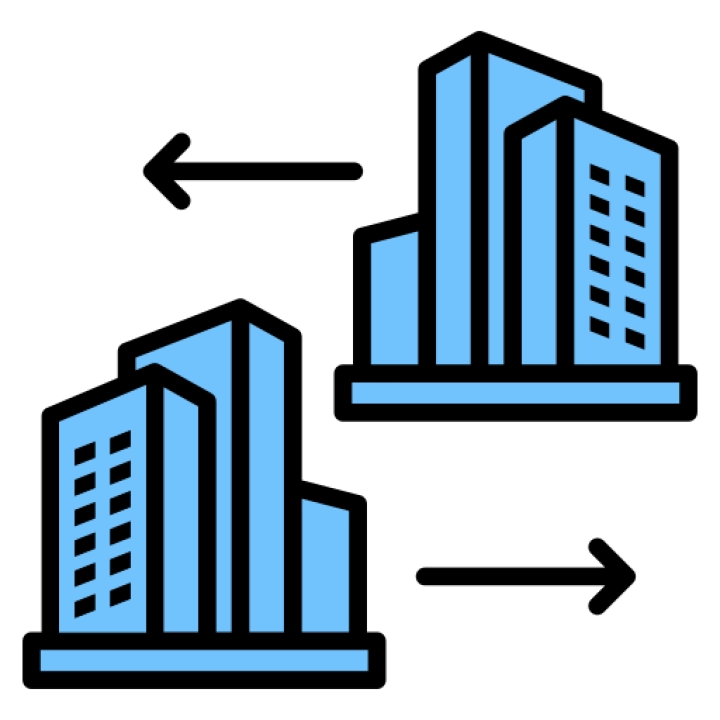Faculty: Graduate School of Natural and Applied Sciences
This interdisciplinary program focuses on planning, designing, and managing urban environments to enhance sustainability, livability, and economic development. Students explore key areas such as urban planning, sustainable development, urban design, community engagement, and policy analysis. The program emphasizes practical skills, theoretical knowledge, and understanding of social, economic, and environmental considerations. Graduates are prepared for careers in urban planning, community development, policy analysis, and related fields.
Learning Objectives:
- Understand the fundamentals of urban transformation and sustainable development.
- Develop skills in urban planning, design, and management.
- Learn techniques of community engagement and stakeholder collaboration.
- Explore policy analysis and its applications in urban development.
- Understand social, economic, and environmental considerations in urban transformation.
- Analyze challenges and opportunities in urban planning and development.
- Develop teamwork, communication, and problem-solving skills for urban projects.
Main Curriculum:
-
Introduction to Urban Transformation
- Overview of urban transformation, its basic concepts, and historical context.
- Fundamentals of sustainable urban development and planning.
-
Urban Planning
- Principles of urban planning, including land use, zoning, and infrastructure development.
- Techniques for creating comprehensive urban plans and policies.
-
Sustainable Development
- Fundamentals of sustainable development, including environmental sustainability, social equity, and economic viability.
- Techniques for integrating sustainability into urban planning and design.
-
Urban Design
- Principles of urban design, including public spaces, architecture, and urban aesthetics.
- Techniques for designing livable and inclusive urban environments.
-
Community Engagement
- Fundamentals of community engagement, including public participation, stakeholder collaboration, and community-led initiatives.
- Techniques for involving communities in urban planning and development processes.
-
Policy Analysis
- Principles of policy analysis, including policy formulation, implementation, and evaluation.
- Techniques for analyzing and developing urban policies and regulations.
-
Social, Economic, and Environmental Considerations
- Understand the social, economic, and environmental impacts of urban transformation.
- Techniques for addressing and mitigating negative impacts while enhancing positive outcomes.
-
Practical Training in Urban Transformation
- Real-world experiences in urban planning and development, including observations, internships, and practical projects in urban settings.
- Techniques for applying acquired skills in practical urban transformation environments.
-
Capstone Project in Urban Transformation
- A comprehensive project to apply skills in urban planning, sustainable development, or community engagement.
- Techniques for presenting a polished and impactful urban transformation project.
Assessment Methods:
Reports on urban planning, sustainable development analyses, urban design projects, community engagement plans, policy analysis studies, social and environmental impact assessments, practical training reports, capstone projects, group projects, and internships.
Recommended Textbooks:
- "Urban Planning: A Very Short Introduction" by Patsy Healey.
- "Sustainable Urban Development" by David Cadman and Geoffrey Birks.
- "Urban Design in the Real World" by Matthew Carmona.
- "Community Engagement: A Reader in Participatory Democracy" by various authors.
- "Policy Analysis: Concepts and Practice" by various authors.
Prerequisites:
Basic knowledge of urban studies, planning, and environmental sciences. Suitable for students interested in urban planning, community development, and sustainable urban development.
Duration of the Program:
The typical duration for obtaining a bachelor's degree is 4 years, including coursework, projects, pragmatic training, and internships.
Qualification:
Graduates can obtain a degree in urban transformation and pursue professional certifications in urban planning, sustainable development, or related fields.
Target Audience:
Aspiring city planners, community developers, policy analysts, and professionals aiming to specialize in urban transformation and sustainable development. This program equips students with the practical, theoretical, and collaborative skills necessary to excel in urban transformation, supporting careers in urban planning, community development, policy analysis, and related fields.

